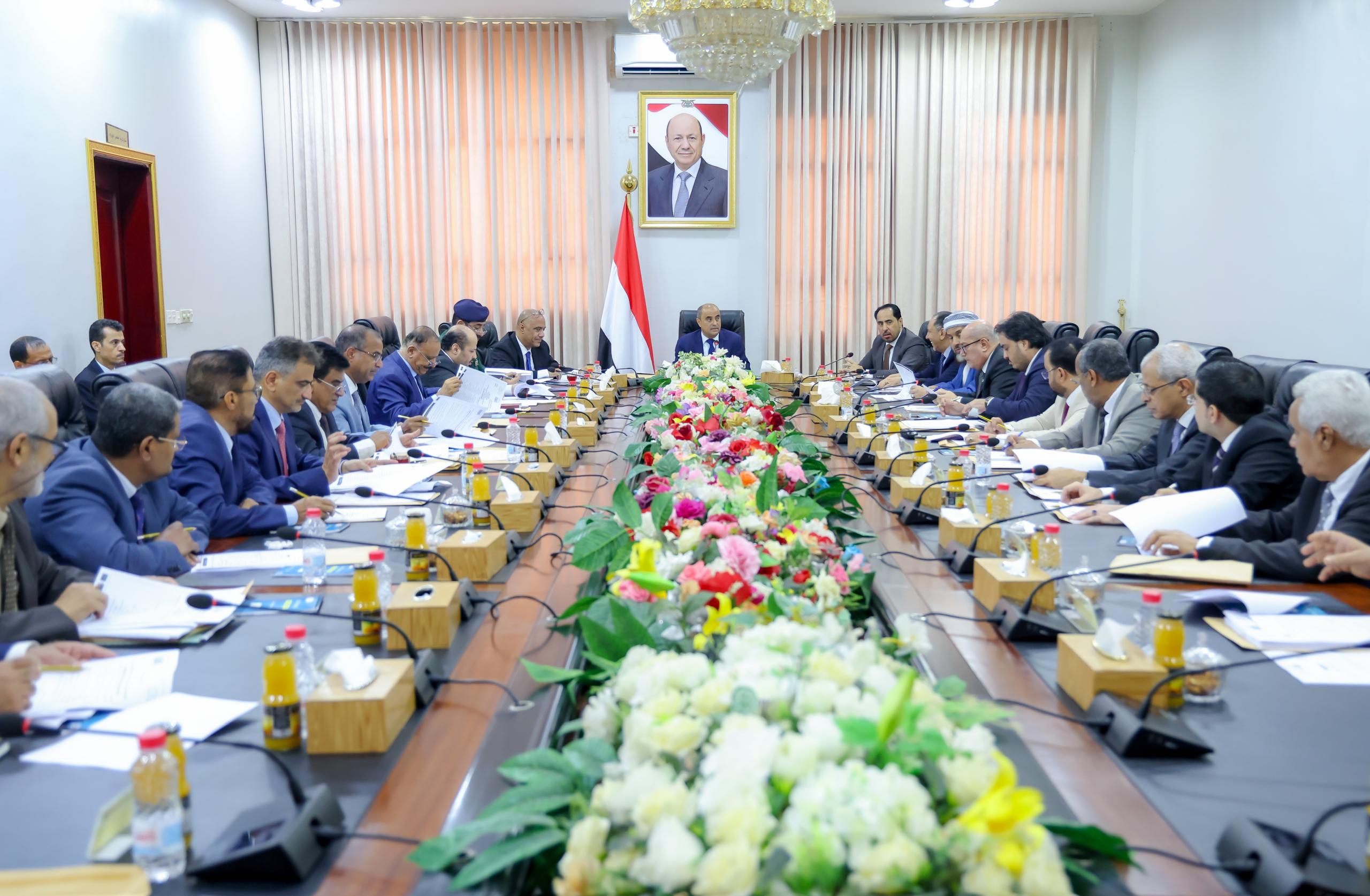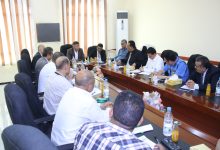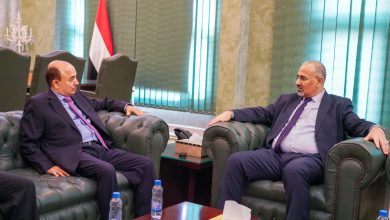The Cabinet reviews economic and service developments amid positive currency exchange changes, emphasizing real-life impacts.

Cabinet Reviews Economic Developments Amid Currency Improvements
On Wednesday, the Yemeni Cabinet convened in the temporary capital of Aden, led by Prime Minister Salem Saleh Bin Brek. The meeting focused on recent economic and service developments, particularly in light of positive changes in the national currency’s exchange rate. The Cabinet emphasized the responsibility of various government entities to translate these improvements into tangible benefits for citizens.
Ongoing Government Efforts to Stabilize Currency
Council members discussed the government’s continuous efforts, in collaboration with the Central Bank of Yemen, to stabilize the currency and ensure its recovery. Key measures include regulating the banking market and enhancing the roles of ministries and relevant authorities in monitoring prices of goods, medicines, and services. These actions aim to align with the favorable shifts in the exchange rate, ultimately easing the financial burdens on citizens.
Commitment to Combat Economic Warfare
The Cabinet reaffirmed the government’s determination, supported by the Presidential Leadership Council, to overcome the systematic economic warfare waged by Houthi militias against the Yemeni people and the national economy. This includes targeting crude oil export ports, disrupting legal currency circulation in Houthi-controlled areas, and implementing policies that lead to widespread poverty. The Cabinet stressed that this economic conflict represents a critical front in the fight against the Houthi coup and will be met with firm actions, including ongoing reforms and strengthening financial resilience.
Prime Minister’s Overview of Current Conditions
At the meeting’s outset, Prime Minister Bin Brek provided a comprehensive briefing on the political, military, security, economic, and service conditions. He noted that the recent improvement in the national currency’s exchange rate results from the government’s integrated financial and monetary policies. The immediate priority is to ensure that this improvement significantly impacts citizens’ daily lives. He urged ministries and relevant authorities to take full responsibility for translating this progress into real-world benefits by reducing prices and combating market manipulation.
Local Authorities Urged to Act
The Prime Minister directed local authorities to actively engage with the positive changes in the exchange rate. He called for intensified monitoring campaigns to reflect these improvements in the prices of essential goods and services, ensuring that citizens feel the benefits in their daily lives. He urged all relevant agencies to coordinate efforts and maintain fair profit margins, emphasizing that price reductions must be genuine and not merely superficial.
Appreciation for International Support
The Prime Minister expressed the government’s deep appreciation for the generous support from Saudi Arabia and the United Arab Emirates, which has been crucial in maintaining economic stability. He highlighted the need for urgent reinforcement of this support to enable the government to solidify gains, ensure sustainable recovery, and alleviate citizens’ hardships.
Strengthening Economic Partnerships
The Cabinet also reviewed the outcomes of recent discussions with the UK Ambassador to Yemen and the Chargé d’Affaires of the People’s Republic of China. These talks focused on enhancing partnerships and cooperation in economic and developmental fields, aiming to expand investments in vital sectors to support economic recovery.
Foreign Affairs Guidelines
The Prime Minister instructed the Ministry of Foreign Affairs to establish guidelines for international participation, delegation travel, and representation levels at various events. A comprehensive report will be submitted to the Cabinet for discussion and necessary action.
Market Regulation Efforts
The Cabinet listened to a report from the Minister of Industry and Trade regarding the ministry’s efforts to conduct extensive field visits to regulate markets in Aden and liberated provinces. These visits aim to ensure traders comply with price reductions in line with the improved exchange rate. The Minister noted positive responses from citizens and traders, who have actively engaged with monitoring teams through hotlines to report violations.
Commitment to Legal Currency Use
The Cabinet emphasized the importance of enforcing laws regarding exclusive transactions in Yemeni rials, prohibiting the use of foreign currencies in commercial and real estate dealings. This measure aims to protect monetary sovereignty and enhance the stability of the national currency.
Encouraging Private Sector Collaboration
The Cabinet reiterated its commitment to strengthening partnerships with the national private sector, recognizing its pivotal role in economic development. It urged traders and importers to fulfill their national and ethical responsibilities during this critical phase by reducing prices in line with the exchange rate and maintaining fair profit margins.
Prioritizing Financial and Monetary Policies
The Cabinet underscored that the integration of financial and monetary policies remains a priority in the government’s reform agenda. This approach aims to enhance public revenues, control expenditures, and achieve overall economic stability, which has positively influenced the national currency’s exchange rate and restored market confidence.
Approval of Oil Refinery Agreement
The Cabinet approved an agreement for the design, construction, financing, and operation of an oil refinery, storage tanks, and a free zone in Hadramout, incorporating the provided feedback. The Minister of Oil and Minerals has been tasked with completing the necessary procedures for implementation.
Promoting Local Pharmaceutical Production
The Cabinet agreed to encourage investment in the pharmaceutical and medical supplies industry as a first step toward localizing drug production. The decision includes offering incentives and facilities for establishing national pharmaceutical factories to meet local consumption needs and reduce import costs.
Assessment of Service Conditions
The Cabinet evaluated the current service situation in Aden and liberated provinces based on reports from relevant ministers. It affirmed the government’s commitment to improving essential services, particularly in electricity, water, health, and education sectors, through plan reviews and prioritization.
Condemnation of Israeli Actions
On the international front, the Cabinet strongly condemned the incursion of the Israeli National Security Minister and a group of settlers into the Al-Aqsa Mosque compound, describing it as a dangerous and provocative escalation. The Cabinet reiterated Yemen’s unwavering support for the Palestinian people and their legitimate rights, condemning the war crimes and starvation tactics perpetrated by the occupation in Gaza.
Support for Two-State Solution
The Cabinet welcomed the final document from the international conference on implementing the two-state solution, co-chaired by Saudi Arabia and France. It viewed this framework as a viable path toward achieving lasting peace and noted announcements from several countries regarding their intention to recognize the Palestinian state, reinforcing international legitimacy and advancing a comprehensive and just peace process.
To follow the news in Arabic





